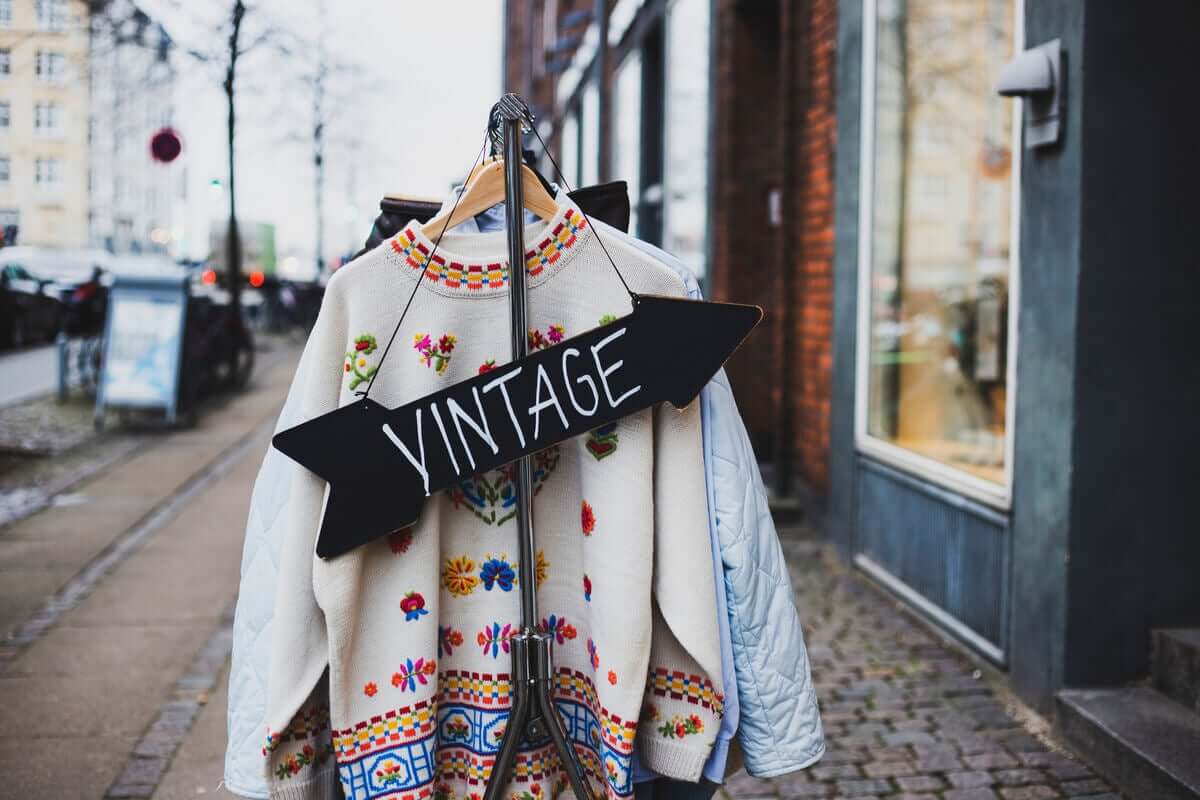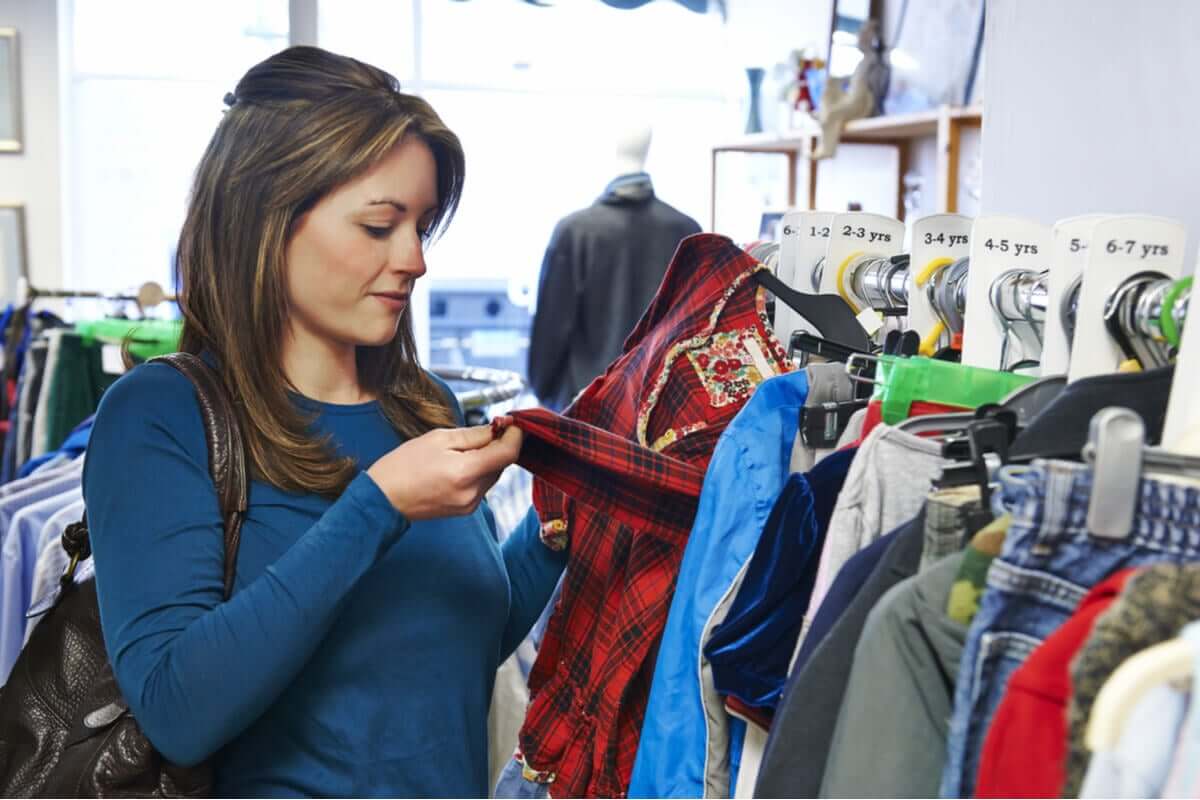6 Tips for Buying Second-Hand Clothes

Buying second-hand clothes is a great idea from many different points of view. As regards protecting the environment, it helps to reduce textile waste as it means fewer clothes that could still be worn are thrown out.
Likewise, it means more people have access to quality garments at affordable prices. In addition, the practice provides another niche to keep the economy ticking.
Buying second-hand clothes has become popular thanks to the concept of sustainability, which is becoming more and more necessary in the world. This means finding ways to meet our needs without compromising the resources that will be needed by future generations.
As a result, there are now many companies that are dedicated to finding second-hand clothes in good condition and selling them at affordable prices. These are supported by well-known brands which are committed to extending the useful life of the garments they sell.
4 reasons to buy second-hand clothing
You might be wondering why it’s a good idea to extend the life cycle of clothes. Well, here are 4 good reasons:
1. Unique and dreamy garments
Going into a second-hand clothes store is like entering a treasure market! Due to the growth in popularity of the business model, you can find fashionable, brand name clothes at incredible prices.
Now, if you’re one of those people who love vintage, you’ll think you’re dreaming. You can find valuable clothes in these stores that are no longer available new, so take your time choosing.

2. You support the local economy
Most second-hand clothes stores are small businesses. That is people who dreamed of having their own business and are in the process of growing. So when you shop in these places you’re supporting the growth of the local economy.
In addition, these stores are usually staffed by people who are attentive and willing to give advice. Most of the salespeople have extensive knowledge of fashion and brands which will add to your experience, and you’ll learn more about fashion and style.
3. You reduce landfill waste when you buy second-hand clothes
Buying second-hand clothes means less landfill waste for many reasons. First, by giving clothes that are in good condition another chance, you prevent them from ending up in these dumps.
Second, you’ll be buying clothes that, for the most part, were designed to last, meaning they were made with quality raw materials. This means you’ll buy less cheap, poor-quality clothing that wears out faster.
4. You conserve natural resources
Just because this is last on the list doesn’t mean it’s less important. Sustainable fashion means less use of natural resources such as water, land, cotton, and other natural fibers to manufacture more and more garments.
The main polluting element is the process of dyeing textiles, either of natural or artificial origin. The latter, in fact, are more difficult to dye and usually require a large amount of heavy and toxic metals. These components require, in turn, large quantities of water to process.
Tips for buying second-hand clothes
Ok, so now you know why you should buy second-hand clothes and are wondering how to improve the experience. Well, here are 6 tips that will help you choose the best second-hand clothes.
1. Try to take your time and be patient
As mentioned above, buying second-hand clothes does require patience. Whether you do your shopping through a virtual platform or in a store, it’s best to do it when you have time to search.
These places usually have large quantities of clothes. So, if you want to find your treasure, you’ll have to search, search and search. This way, you’ll avoid ending up with something you’re not entirely comfortable with.
2. Open your mind and don’t let anything distract you from the clothes
Second-hand clothes stores usually have vintage and very, very vintage garments. For this reason, you should keep an open mind. If you liked the item, don’t fall prey to ideas like “is it too out of date?”
The important thing here is to help the planet while buying unique garments that are no longer available in upmarket stores.
3. Remember shopping is always more fun with company
It’s always a good idea, especially when shopping in physical stores, to go with company. A good friend can help you look for the best items and help you decide if they’re for you or not.
In addition, you’ll be spreading the word and helping more people fall in love with second-hand clothes.
4. Check all second-hand clothes thoroughly
Although second-hand stores usually have high standards for what garments they’ll accept, and they take good care of their clothes, it’s still important to check the clothes you’re interested in taking home thoroughly. Make sure the buttons are in good condition, as well as any zippers or pins.
Check the crotch of the pants; if it’s frayed and you have thick legs, they may not be the best option. Look for stains or serious scuffs.

5. Try on everything you choose when it comes to second-hand clothes
This is very important! Don’t take home clothes just because they look nice. Get your friend’s opinion; that’s what they’re there for.
Don’t buy clothes that might not fit you; you’ll probably be too lazy to go back and change them. After a few months, they’ll end up in the trash. You’ll have wasted time and denied someone else the opportunity to extend the useful life of that outfit.
6. Wash the clothes before wearing them
Washing clothes, new or used, is essential. Like you, many people have touched these clothes and checked them out. Washing prevents the spread of different microorganisms.
In fact, the Center for Disease Control and Prevention says that the best way to wash and disinfect clothes is to use the hottest setting on the washing machine and tumble dry.
Second-hand clothes; a new world waiting to be discovered
As you can see, buying second-hand clothes has many benefits. Everyone wins, especially our planet.
Finally, one last piece of advice: let yourself be seduced by these places full of treasures! Think about selling or exchanging your own clothes and contribute to the growth of the beneficial secondhand market.
All cited sources were thoroughly reviewed by our team to ensure their quality, reliability, currency, and validity. The bibliography of this article was considered reliable and of academic or scientific accuracy.
- Cleaning and Disinfecting Your Home. Centers for Disease Control and Prevention. 2021.
- Manual para el consumo responsable de ropa y complementos. Gobierno de Aragón.
- Zarta Ávila, P. (2018). La sustentabilidad o sostenibilidad: un concepto poderoso para la humanidad. Tabula Rasa, (28), 409-423. Doi: https://doi.org/10.25058/20112742.n28.18
This text is provided for informational purposes only and does not replace consultation with a professional. If in doubt, consult your specialist.








